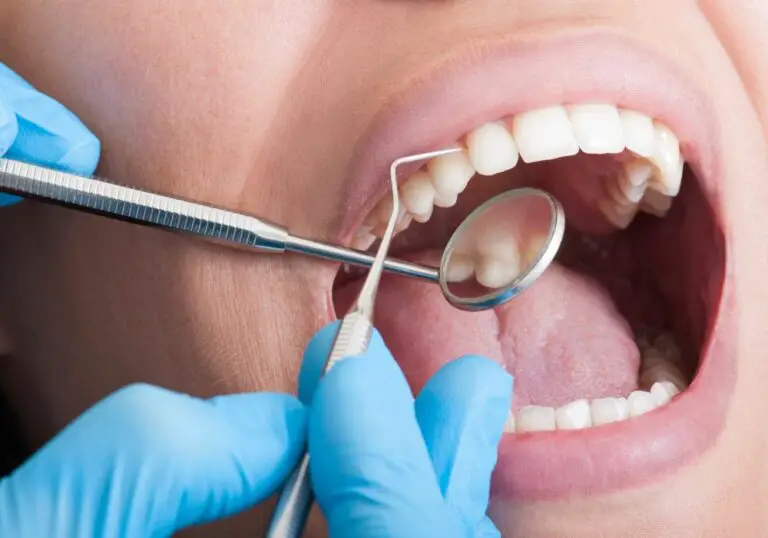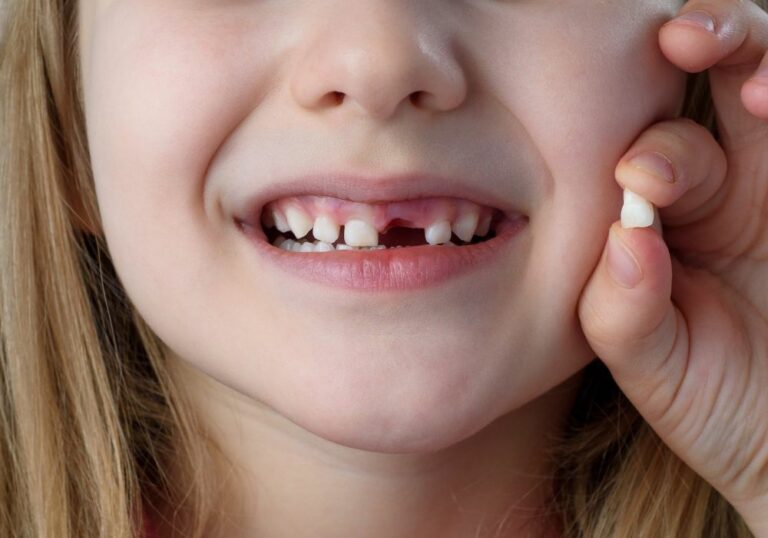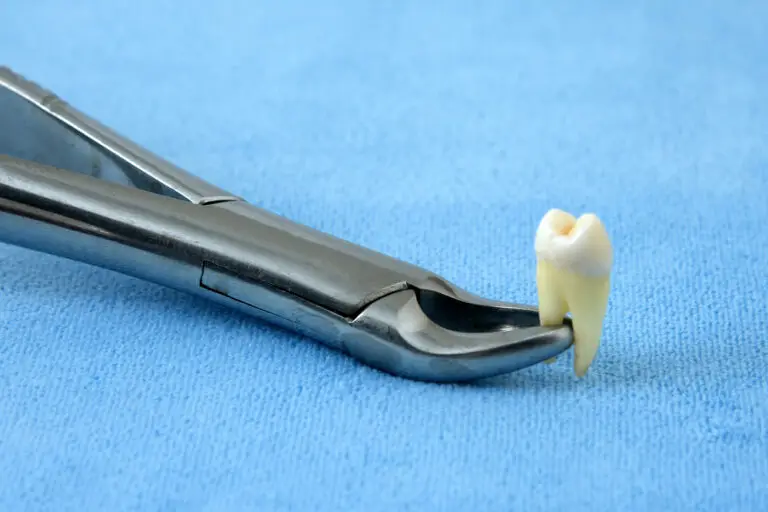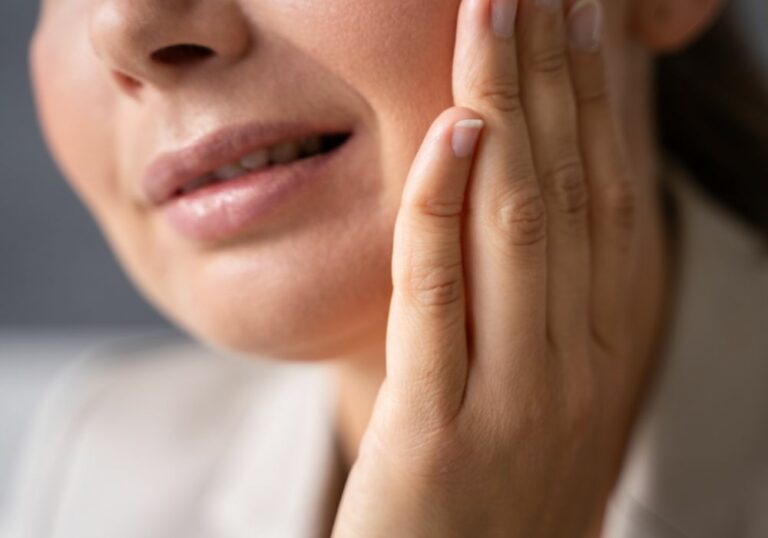Are you experiencing pain in your teeth and wondering if your wisdom teeth could be the culprit? Wisdom teeth, or third molars, typically emerge in your late teens or early twenties and can cause discomfort during the eruption process. But can wisdom teeth pain radiate to other teeth in your mouth? The answer is yes.
When a wisdom tooth is impacted or decayed, it can cause pain in other teeth due to the proximity of the roots. Inflammation from a wisdom tooth can also spread to other teeth and cause discomfort. Additionally, wisdom teeth are located at the back of the mouth, making them hard to clean and more susceptible to decay and gum disease. If left untreated, this can lead to pain and damage to other teeth.
If you are experiencing pain in your teeth, it is important to consult with a dentist to determine the cause. They can examine your mouth and take X-rays to determine if your wisdom teeth are causing the discomfort. Treatment options may include extraction or other dental procedures to alleviate the pain and prevent further damage to your teeth.
Understanding Wisdom Teeth
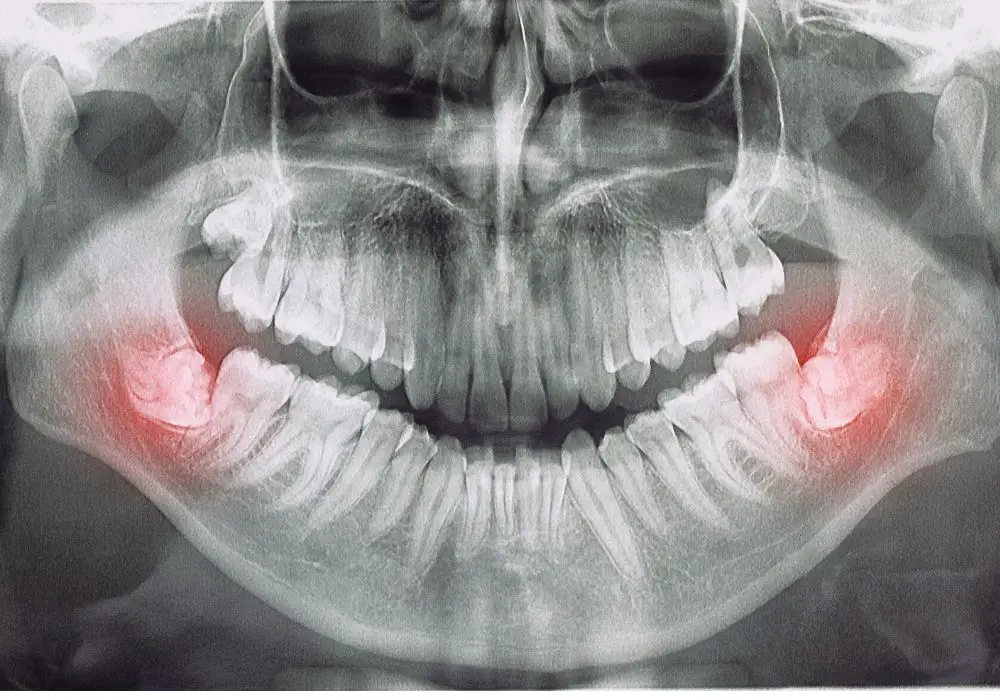
What Are Wisdom Teeth
Wisdom teeth are the third molars that typically erupt in your late teens or early twenties. They are the last set of teeth to develop and are located at the back of your mouth. Most people have four wisdom teeth, but some may have fewer or none at all.
Why Do Wisdom Teeth Cause Pain
When wisdom teeth do not have enough room to grow properly, they become impacted. Impacted wisdom teeth can cause pain, damage to other teeth, and other dental problems. The proximity of the roots of wisdom teeth to other teeth can cause pain in those teeth. Inflammation from an impacted wisdom tooth can also spread to other teeth and cause pain.
Impacted wisdom teeth may cause no apparent or immediate problems. But because they’re hard to clean, they may be more vulnerable to tooth decay and gum disease than other teeth are. Signs of impacted wisdom teeth include pain or swelling of your jaw or face, red, swollen or bleeding gums, a bad taste in your mouth, and bad breath (halitosis).
Removing wisdom teeth can help resolve these problems. In the meantime, there are several natural home remedies available to alleviate pain and discomfort. These include rinsing your mouth with warm saltwater, applying a cold compress to your cheek, taking over-the-counter pain relievers, and avoiding hard or crunchy foods.
In summary, wisdom teeth can cause pain in other teeth due to the proximity of their roots. Impacted wisdom teeth can also cause pain, damage to other teeth, and other dental problems. If you are experiencing pain or discomfort in your mouth, it is important to see a dentist for an evaluation.
Interrelation of Teeth Pain
How Wisdom Teeth Pain Affects Other Teeth
If you are experiencing pain in your teeth, it may be caused by your wisdom teeth. Wisdom teeth are the last set of molars to come in, and they can cause a variety of problems if they do not come in properly. Wisdom teeth can cause pain in other teeth due to their proximity to the roots of neighboring teeth. Additionally, inflammation from a wisdom tooth can spread to other teeth and cause pain.
When wisdom teeth are impacted or decayed, they can cause pain in other teeth. Impacted wisdom teeth can result in pain, damage to other teeth, and other dental problems. In some cases, impacted wisdom teeth may cause no apparent or immediate problems. But because they’re hard to clean, they may be more vulnerable to tooth decay and gum disease than other teeth are.
Signs Your Wisdom Teeth Are Causing Other Teeth Pain
If you are experiencing pain in your teeth, it may be a sign that your wisdom teeth are causing the problem. Here are some signs that your wisdom teeth may be causing other teeth pain:
- Pain in the back of the mouth
- Pain in the jaw
- Swelling in the gums
- Difficulty opening your mouth
- Bad breath or a bad taste in your mouth
If you are experiencing any of these symptoms, you should see your dentist as soon as possible. Your dentist can determine if your wisdom teeth are causing the problem and recommend the appropriate treatment.
In summary, wisdom teeth can cause pain in other teeth due to their proximity to neighboring teeth and the inflammation they can cause. If you are experiencing pain in your teeth, it may be a sign that your wisdom teeth are causing the problem. See your dentist if you are experiencing any of the symptoms listed above.
Diagnosis and Treatment

How to Diagnose Wisdom Teeth Pain
If you are experiencing pain in your mouth, it is essential to visit a dentist to determine the cause of the discomfort. During your visit, your dentist will conduct a thorough examination of your mouth, teeth, and gums to identify any issues that may be causing your pain. They will also ask you about your symptoms and medical history.
To diagnose wisdom teeth pain, your dentist may take X-rays to get a better look at the position of your teeth and determine if they are impacted or causing damage to other teeth. They may also perform a visual examination of your mouth and gums to identify any signs of inflammation, infection, or swelling.
Treatment Options for Wisdom Teeth Pain
If your wisdom teeth are causing you pain, your dentist may recommend one of several treatment options depending on the severity of your symptoms. Some of these options include:
- Pain Management: Over-the-counter pain relievers such as ibuprofen or acetaminophen can help manage pain and reduce inflammation.
- Antibiotics: If your wisdom teeth are infected, your dentist may prescribe antibiotics to help clear up the infection and prevent it from spreading.
- Surgical Removal: If your wisdom teeth are impacted or causing damage to other teeth, your dentist may recommend surgical removal. This procedure is typically done under local anesthesia, and recovery time can vary depending on the complexity of the extraction.
- Home Remedies: In addition to medical treatments, there are several home remedies that may help alleviate wisdom teeth pain. These include rinsing your mouth with warm salt water, applying a cold compress to the affected area, and avoiding hard or crunchy foods.
It is important to follow your dentist’s recommendations for treatment and to attend all follow-up appointments to ensure proper healing and to prevent any complications.
Preventive Measures

How to Prevent Wisdom Teeth Pain
If you still have your wisdom teeth and want to prevent pain or discomfort, there are a few things you can do. First, make sure to brush your teeth twice a day and floss daily. This will help prevent tooth decay and gum disease, which can exacerbate wisdom teeth pain. Additionally, avoid chewing gum or eating sticky or hard foods that can cause irritation to the gums and teeth.
Another way to prevent wisdom teeth pain is to see your dentist regularly. They can monitor the growth and development of your wisdom teeth and recommend treatment options if necessary. If your dentist recommends wisdom teeth removal, it is best to follow their advice and schedule the procedure as soon as possible to avoid complications.
Maintaining Oral Health
Maintaining good oral health is crucial in preventing wisdom teeth pain. This includes brushing your teeth twice a day with fluoride toothpaste, flossing daily, and using mouthwash to kill bacteria that can cause tooth decay and gum disease. Additionally, you should avoid smoking or using tobacco products, which can increase your risk of developing oral health problems.
Eating a healthy diet with plenty of fruits, vegetables, and whole grains can also help maintain good oral health. These foods are rich in vitamins and minerals that promote healthy teeth and gums. Finally, make sure to schedule regular dental checkups and cleanings to keep your teeth and gums healthy and prevent any potential problems from developing.
By taking these preventive measures, you can reduce your risk of experiencing wisdom teeth pain and maintain good oral health for years to come.
Frequently Asked Questions
What are the symptoms of an impacted wisdom tooth?
An impacted wisdom tooth can cause symptoms such as red or swollen gums, tender or bleeding gums, jaw pain, swelling around the jaw, bad breath, an unpleasant taste in your mouth, and difficulty opening your mouth. If you experience any of these symptoms, it is important to see your dentist.
How can I relieve throbbing pain from my wisdom teeth?
You can try applying a cold compress to the affected area for 20 minutes at a time to numb the area and reduce swelling. Over-the-counter pain relievers such as ibuprofen or acetaminophen can also help alleviate pain. It is important to talk to your dentist about any persistent pain or discomfort.
What are the signs of wisdom teeth coming in correctly?
If your wisdom teeth are coming in correctly, you may experience some mild discomfort or pressure as they emerge through the gums. However, there should not be any severe pain or swelling. Your dentist can monitor the progress of your wisdom teeth and determine if they are coming in correctly.
What are the symptoms of an infected wisdom tooth?
An infected wisdom tooth can cause symptoms such as severe pain, swelling, redness, and tenderness in the affected area. You may also experience fever, headache, or difficulty opening your mouth. It is important to see your dentist as soon as possible if you suspect an infection.
What is the process for removing wisdom teeth?
The process for removing wisdom teeth typically involves a surgical procedure. Your dentist or oral surgeon will numb the area with a local anesthetic and may provide sedation to help you relax. They will then remove the wisdom teeth and may place stitches to help the area heal. Recovery time can vary depending on the individual and the extent of the procedure.
Can pain from wisdom teeth cause jaw pain on one side?
Yes, pain from impacted or infected wisdom teeth can cause jaw pain on one side. It is important to see your dentist if you experience any persistent pain or discomfort in the area behind your last molar.

